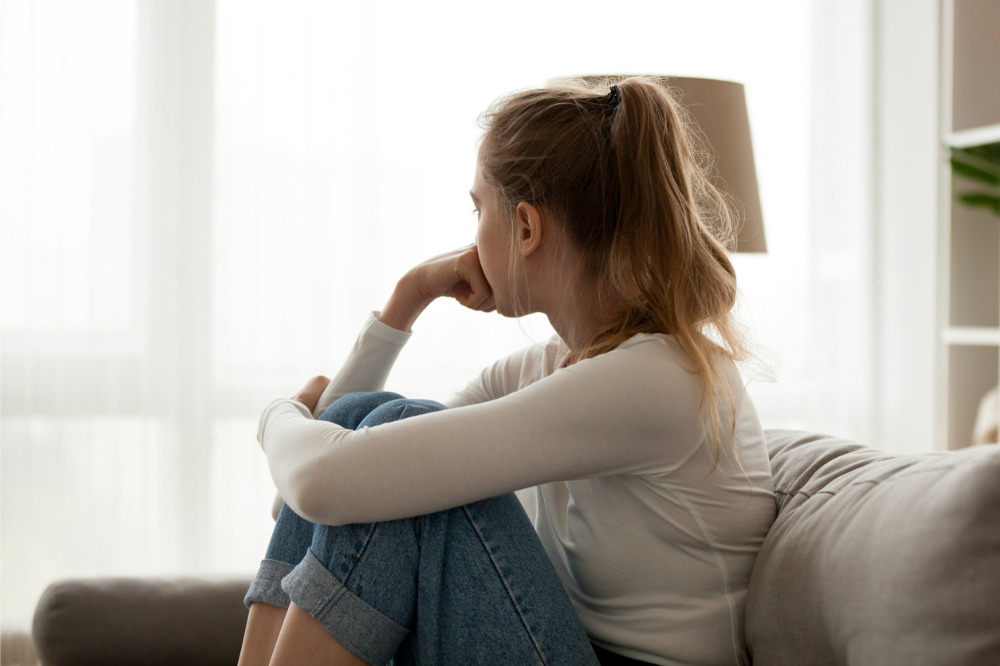
According to research by Headspace, 40% of young people feel that COVID-19 has impacted their confidence to achieve future goals.
A separate study found one in four young people consider the pandemic to be “one of the most stressful experiences” of their lives.
Such reports of students’ worsening mental health issues have motivated increased efforts by schools, universities and governments to improve students’ mental health during this difficult time.
While some of these programs are showing promising results, many young people are still struggling to adapt to the surreal new world that COVID-19 pandemic has brought about.
Teens facing a ‘downright bizarre situation’
This week, world-leading psychologist, Professor Joseph Ciarrochi from the Australian Catholic University, offered some key insights for educators and parents when he released his new book ‘Your Life, Your Way’.
Professor Ciarrochi’s book provides acceptance and commitment therapy skills to help teens manage emotions and build resilience, whether it’s coping with the impact of the pandemic, concentration for study or the scourge of bullying.
He said the year 2020 has “wiped out the topsy turvy world that most teenagers experience anyway and replaced it with a downright bizarre situation”.
“Teens across Australia have been isolated at home away from their peer groups, they have missed vital classroom time, and they’ve had longed-for school balls and activities cancelled,” Professor Ciarrochi explained.
“Some teens have lost their jobs and in many cases their parents have lost jobs.”
Teens shine when given choice
Statistics show the state of Victoria recorded a 33% rise in children presenting to hospital with self-harm injuries in 2020 compared to a year earlier. Most tragically, some teenagers have committed suicide.
Another recent report found that one in six (17.1%) young people aged 15 to 19 who responded to Mission Australia’s Youth Survey 2019 have been homeless.
“One of the main problems I see is parents constantly telling their teens how they should live, when the teen is naturally seeking greater freedom,” Professor Ciarrochi said.
“Parents may get a little fearful about letting young people choose their life. Perhaps parents fear that youth will do nothing but engage in social media or play video games all day? And, of course, it’s true that parents must establish boundaries with teenagers”.
However, Professor Ciarrochi said studies have found that when young people are entrusted to choose a valued path, they almost always choose something positive for their life, like building social connections, learning something new, or giving to others.
“The best part about letting a young person choose their path, as much as possible, is that when they choose, they stay motivated to make the journey and they don’t feel forced,” he explained.
“The teens’ motivation flows from within them, and there is less need for the parent to push. We named the book Your Life, Your Way as a reminder to teens they should be in the driving seat of their own lives”.
Cultivating doable skills can combat self-doubt
Professor Ciarrochi said that when teenagers are faced with school pressure, family, friends and extracurricular activities, it can sometimes feel like they’re being pulled in a dozen different directions – none of which are their own.
Professor Ciarrochi said the answer to these self-doubts was cultivating ‘doable’ skills grounded in mindfulness, acceptance, and positive psychology.
He said these skills help teens form positive friendships, manage difficult emotions, and get unstuck from bad habits.
“Mindfulness may seem obscure and far from the ordinary teen’s life, but it’s not. Mindfulness is a tool that teens can use every day,” Professor Ciarrochi said.
“Imagine a young person is being bullied. Some teens will get stuck in the bullying relationship, repeating the same ineffective response to the bully. Perhaps, as I did when I was young, the teen will react to the bully by being super-agreeable or they may overreact and start punching the bully and get in trouble with teachers”.
Professor Ciarrochi said mindfulness can avoid both unhelpful approaches by helping the teen to become aware of their breath, and slow down and notice what is around them with curiosity. This disrupts their usual, unhelpful response and gives the teen options to try new behaviours.
“Not everything they try will work, but at least they will be doing something new. But if they keep repeating the old unhelpful behaviour, they will just get more bullying,” Professor Ciarrochi said.
“We find that when young people are able to insert a mindful pause into moments of their lives, they start making better decisions. They respond better not just to bullies, but to teachers, parents and to their friends.”
Mindfulness alone is not enough
Professor Ciarrochi said that as effective as mindfulness can be in many situations, bullying takes its toll on a young person’s sense of self and belief they can do things in life.
“Young people can learn to accept the difficult emotions that come with bullying, rather than fighting these emotions in some ineffective way, such as using alcohol or drugs or avoiding school,” he said.
“The teen can come to see that feeling bad does not mean they are in some way weak or flawed. Feelings are just a body signal, like a text message”.
Professor Ciarrochi said once teens are willing to accept that distress is normal, they are ready to engage in something positive and they are ready to think about what they value and care about, and how they can deliberately build their life, their way.
“This is the key. We need to help young people to hear what is in their own heart and let that be their guide”.


